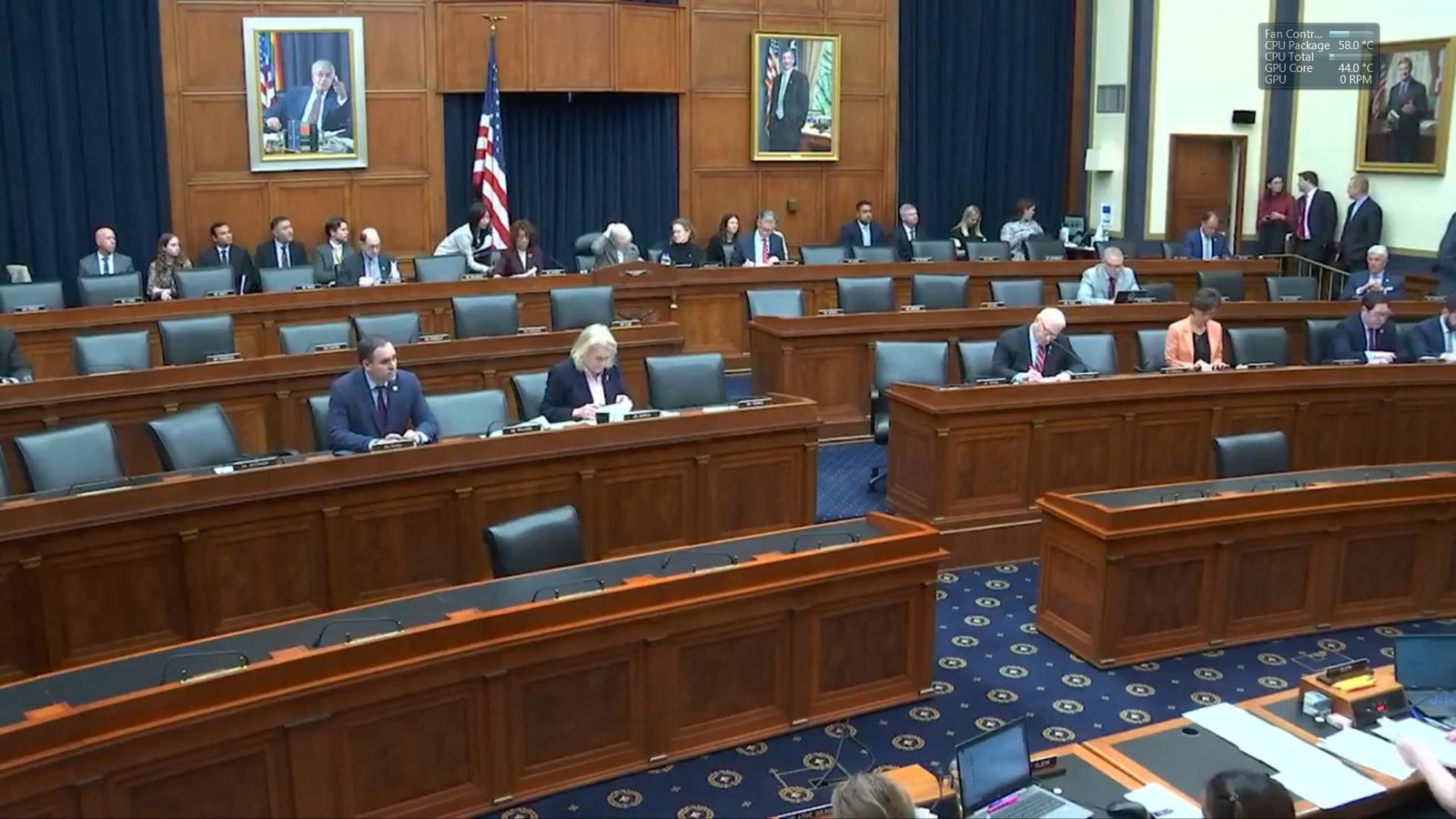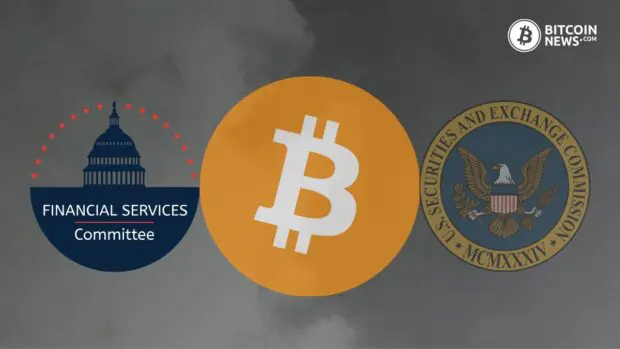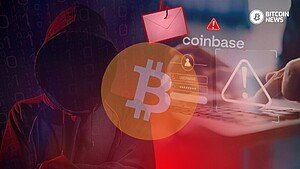In a bipartisan move, the House Financial Services Committee has taken steps to repeal the SEC’s controversial digital assets accounting bulletin, SAB 121.

SAB 121: An Overview
The House Financial Services Committee recently made strides in the ongoing debate surrounding the regulation of digital asset custodianship. Lawmakers referenced a Government Accountability Office report from October 2023, stating SAB 121 should have been officially issued.
This action stems from the Securities and Exchange Commission’s (SEC) issuance of Staff Accounting Bulletin (SAB) 121, a directive that mandates digital asset custodians to report liabilities and corresponding assets on their balance sheets. The bulletin, introduced in March 2022, has sparked significant contention within the Bitcoin space.
SEC’s SAB 109, issued April 11, 2022, mandates that any financial entity offering digital asset custody “should present a liability on its balance sheet to reflect its obligation to safeguard the crypto-assets held for its platform users.”
Bipartisan Support for Resolution
The committee’s decision to advance a resolution to overturn SAB 121 reflects bipartisan cooperation on the issue. Representatives Mike Flood (R-NE) and Wiley Nickel (D-NC) co-sponsored the resolution, highlighting a unified effort across party lines. This bipartisan collaboration underscores the gravity of the matter and the recognition of its impact on the financial sector.
Flood stated:
“SEC virtually locked out the most regulated institutions from serving as custodians for digital assets.”
Rep. Flood expressed concern over the implications of SAB 121, adding:
“The ramifications of requiring banks to hold these assets on-balance sheet are pretty significant.”
Flood criticized the SEC for not consulting with prudential regulators who specialize in bank custody regulation. He highlights that if banks follow the guidelines of SAB 121 for digital asset custody, it could adversely impact their balance sheet, affecting capital and liquidity requirements.
This dilemma forces banks to choose between engaging in digital asset custody, disrupting their overall business operations, or avoiding the market altogether. Flood suggests the need for more well-regulated bank custodians in the digital asset space, emphasizing that the current four custodians for eleven Bitcoin ETFs are all non-banks.
Related reading: Custody Centralized? Coinbase Holds Keys to 90% of Bitcoin ETFs
Representative Maxine Waters (D-CA), the committee’s ranking member, said:
“If this Congressional Review Act resolution is signed into law, it will have a chilling effect on the SEC’s ability to issue staff-level accounting and legal guidance on any other issue in the future,”
Maxine expresses concerns about a resolution that not only repeals a bulletin but also prohibits the SEC from issuing a similar one in the future. She highlights that this bulletin, aimed at providing guidance on accounting for customers’ digital assets, is considered non-binding. Maxine criticizes the resolution, suggesting that it could discourage the SEC staff from offering clarity on digital-asset-related matters in the future, despite complaints from Republicans and the Bitcoin industry about a lack of clarity.
Congresswoman Waters voiced her dissent, emphasizing the importance of consumer protection. She added:
“This guidance was offered to protect investors against the mishandling of customer crypto assets by custodians, a practice that was at the core of FTX’s spectacular collapse when billions of crypto assets went missing,”
However, Better Markets, a nonprofit advocating for increased transparency in commodity markets, expressed disapproval, stating that SEC’s SABs were considered “highly technical and result from extensive deliberation and considered opinion of highly experienced experts.” Furthermore, it questioned Congress’ competence and comprehension in addressing these issues.
Better Markets has been a critic of Bitcoin, questioning its value, stating it is “worthless”, and that Bitcoin ETFs are a “historic mistake“.
Implications for Financial Institutions
The resolution’s advancement signals a potential shift in regulatory dynamics for financial institutions involved in digital asset custody services. With the looming threat of SAB 121’s enforcement, banks face the dilemma of either complying with the directive and altering their balance sheet structures or abstaining from bitcoin and digital assets’ custodianship altogether.
Challenges Ahead
Despite the committee’s endorsement of the resolution, several hurdles remain before it can take effect. The resolution must pass through both the House and the Senate, a process that may encounter opposition and deliberation. Additionally, concerns have been raised regarding the potential ramifications of overturning SAB 121, with some advocating for its retention as a safeguard against fraudulent practices in the Bitcoin space.
The House floor is ready to vote on the resolution for passage, but Jake Chervinsky, CLO of Variant, a digital asset venture capital firm, doubts its success. He emphasized his skepticism on X, stating:
“bill to (1) get a House floor vote, (2) get through the Democratic Senate, and (3) get signed by POTUS.”
Conclusion
The House Financial Services Committee’s decision to advance the resolution marks a significant development in the ongoing dialogue surrounding Bitcoin regulation. With bipartisan support, the resolution reflects a concerted effort to address the complexities of digital asset custodianship and its implications for the financial sector. As the resolution progresses through the legislative process, the Bitcoin community awaits further clarity on the future regulatory landscape governing digital asset custody services.
The resolution’s advancement underscores the evolving nature of digital asset regulations and the collaborative efforts aimed at shaping its trajectory.










